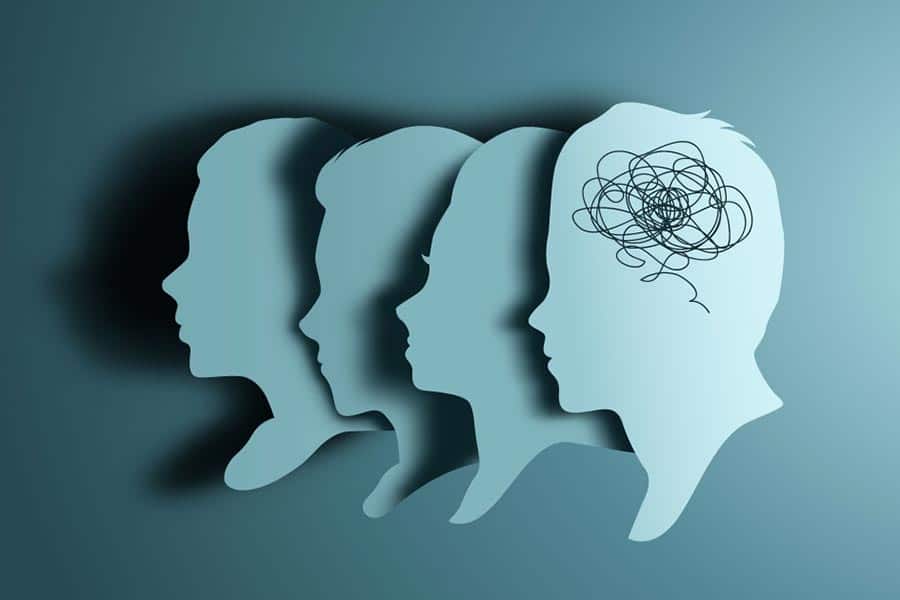Learn how to better manage clients and patients with psychological issues.

A postgraduate course in mental health prepares you to work with people who face psychological challenges. You're trained to understand and meet the needs of consumers with emotional and behavioural problems.
Online programs are open to graduates with degrees in fields such as social work, psychology, nursing or the social sciences. You can study for a graduate certificate, graduate diploma or masters degree. For registered nurses, mental health nursing courses are available.
Postgraduate courses for everyone
Postgraduate courses for Registered Nurses
A popular way to start postgraduate studies in mental health practice is with a Graduate Certificate in Mental Health.
A grad cert holds similar status to a degree despite being shorter. Participants are prepared for advanced positions in their respective fields.
This certificate benefits nurses, case managers, HR professionals, counsellors, and therapists, creating opportunities for specialised roles. For example, the qualification may lead to jobs such as clinical nurse, mental health social worker, or workplace wellbeing manager.
SCU Online - Graduate Certificate in Mental Health
The Graduate Certificate in Mental Health from Southern Cross University is a versatile 100% online course. You choose 4 subjects from topics that include: acute conditions, physical healthcare in mental health, supporting behaviour change, well-being across the lifespan, alternative treatment settings, and contemporary issues. The course is open to graduates with a degree in a health, psychology or social science discipline. You can work full-time while studying and still finish in 8 months. Graduates may continue studying for a graduate diploma or master's degree.
A Graduate Diploma in Mental Health is halfway between a grad cert and masters in terms of duration and cost. It may be ideal if you want substantial professional training without committing to a masters.
The grad dip is a well-recognised qualification that shows advanced knowledge and skill development. Participants complete 8 subjects on improving mental health practice.
This is a practical option for health professionals to enhance credentials. It marks you as a specialist, and depending on your background, qualifies you as a mental health clinician.
SCU Online - Graduate Diploma of Mental Health
Expand your skills in healthcare practice with the Graduate Diploma of Mental Health online from Southern Cross University. Students are able to complete 8 subjects one at a time over 16 months to earn the grad dip. You can do the fully online course while working full-time. You learn a holistic, well-rounded approach to care, preparing you to work across mental health settings and disciplines. Graduates work in roles such as social worker, counsellor, child protection officer, government assessor, case manager and art therapist.
If you have a bachelor degree of any kind, you can study for a Graduate Diploma in Psychology online. The course is equivalent to a Bachelor of Psychology, giving you a foundational education in the psychology discipline.
The postgraduate psychology program will develop your knowledge of psychology broadly and provide a platform to become a psychologist. But be aware that further education steps would be required for registration.
Ten-subject programs can be completed online over 20 months of part-time study.
A Master of Mental Health prepares you to effectively respond to patients experiencing psychological challenges. Programs are open to graduates from different disciplines, including health, psychology and the social sciences.
Online masters programs allow you to study without having to take time away from work. An accelerated course can be completed in 2 years of part-time study.
The MMH degree offers significant benefits, especially if you currently work with unwell clients and feel as though you have some knowledge or skills gaps.
SCU Online - Master of Mental Health
The Master of Mental Health Online is a comprehensive 2-year part-time course designed for graduates in health, psychology, or social science disciplines. Students build advanced skills to address contemporary patient challenges. Highlights of the12-subject program include building a professional portfolio, learning contemporary psychotherapies, and exploring the experiences of people with complex presentations and risk behaviours. Graduates are prepared for diverse roles across the spectrum of patient settings.
Become a Mental Health Nurse
You can be recognised as a specialist mental health nurse after completing an accredited post graduate course. An accredited graduate diploma or masters degree in Mental Health Nursing gives the full 100 points needed for the Education component of the Specialist Nurse Credentialing Program.
A mental health nurse specialises in supporting those with a mental illness like psychosis, schizophrenia, bipolar disorder and depression. Postgraduate education is part of the credentialing framework of the Australian College of Mental Health Nurses.
Mental health nurses attend to the general needs of patients, offering physical, emotional and social support. They usually work as part of a multidisciplinary team that may include doctors, psychologists, case workers, and other nurses and allied health professionals.
A Graduate Certificate in Mental Health Nursing contains four subjects to expand clinical knowledge. This nurse training also leads to a graduate diploma and masters.
Graduates are able to apply evidence-based practice professionally. They also become eligible for qualification allowances and advanced roles such as Clinical Nurse Specialist.
Topics in this focused course may include psychological wellbeing across the lifespan, acute incidents, physical wellness, and facilitating behavioural changes.
SCU Online - Graduate Certificate in Mental Health Nursing
The Graduate Certificate in Mental Health Nursing from Southern Cross University gives nurses the opportunities to gain advanced skills for attending to patients with psychological problems. The 8-month part-time course offers interactive, evidence-based learning under clinically experienced academics, with a focus on contemporary care practices. The program comprises four units and serves as a pathway towards masters studies. The 100% online course is available to Registered Nurses (Division 1) with access to relevant nursing practice.
One of Australia's most popular postgrad courses for nurses is the online Graduate Diploma in Mental Health Nursing. Participants upgrade their skills and strategies for managing mentally ill patients.
You learn about psychological assessment and interventions, psychopharmacology, therapeutic communication, and legal and ethical considerations surrounding patient care. Graduates can apply to become a credentialed MHN.
The grad diploma helps RNs access job opportunities for specialists in this growing field.
SCU Online - Graduate Diploma of Mental Health Nursing
The Southern Cross University (SCU) Graduate Diploma of Mental Health Nursing is accredited by the Australian College of Mental Health Nurses (ACMHN). This fully online course equips registered nurses with qualifications to become Credentialed Mental Health Nurses (CMHN). Key topics include professional portfolio development, lifespan wellness, physical health management, and facilitating behavioural change. SCU Online emphasises a student-centric approach to online education and offers this course at a competitive cost, with FEE-HELP government loans available.
As a Registered Nurse, you have the opportunity to become a mental health nurse with an accredited Masters in Mental Health Nursing online. You'll need access to a mental health nursing practice or practitioners while studying.
A masters program in this field is an expanded version of the graduate diploma. Students complete an extra 4 subjects. An accelerated masters takes 2 years of part-time study compared to 16 months for a grad dip.
Earning a masters degree is a significant accomplishment and may place you in a better position career-wise.
SCU Online - Master of Mental Health Nursing
The Master of Mental Health Nursing from SCU Online is accredited by the Australian College of Mental Health Nurses, with graduates eligible for accreditation. This affordable and fully online course ensures a seamless educational experience for working nurses. The part-time curriculum, comprising 12 subjects, can be completed in less than 2 years, with each subject requiring less than 2 months of study. Key areas of focus include evidence appraisal, acute disturbances, behavioural change support, and building a professional portfolio.
Entry Requirements
To be eligible for postgraduate courses in mental health, you'll ideally have a broadly relevant bachelor degree. The degree could be in health, psychology or other discipline related to the social sciences. Healthcare experience, or even a current clinical position, may be a requirement for some programs. If you lack a degree, you could gain entry based on experience and vocational qualifications.
To gain entry into the mental health graduate certificate course, you should have a bachelor degree, or equivalent or higher qualification, in health, psychology or a social science discipline.
If you're a registered nurse, you may also be eligible for the Graduate Certificate in Mental Health Nursing if you have current access to mental health nursing practice.
Fully online courses are unavailable to international students on a student visa. All students must be proficient in English.
Advanced standing is available to recognise prior learning: previous education, qualifications and job experience. The process may reduce the number of units you need to study, in turn reducing the cost and time taken to earn a degree or other qualification.
Tuition fees: $2,658 per subject in 2024. FEE-HELP loans to cover course fees are automatically available from the Australian Government for domestic students.
Key dates: Intakes occur in Jan, Mar, Apr, July, Aug, Nov.
What You'll Study (Course Structure)
Any postgraduate course on mental health aims to provide knowledge and tools for managing clients. You'll study mental health issues Australian face, approaches to handling consumers and developing treatments, and professional practice in a health services setting.
To give you an idea of the kinds of topics covered, here are example subjects from graduate certificate courses.
Southern Cross University
In this subject, you'll examine the experiences of people with complex mental health presentations. Also, you'll study mental health treatments and models, formulating collaborative responses that reflect consumer needs in different mental health settings.
To effectively engage and intervene in cases of children, adolescents and older persons, age factors should be considered. This unit explores life stage and bio-psycho-social context. Students learn to critically apply context to assessment, diagnosis and treatment across the human lifespan.
This subject explores the role that physical health has on mental health outcomes and how physical health is affected by mental illness and pharmacological and alternate treatments. You'll build an understanding of how to ensure patient physical health needs are met as part of holistic mental health assessment, diagnosis and intervention.
In this unit, students deepen their knowledge of how to support constructive change in patients that aids their recovery. Psychological approaches and models of understanding are explored. You'll deconstruct concepts around behaviour change in the context of your professional discipline. Underpinning the course are motivational Interviewing strategies that help produce co-constructed change between consumer and clinician.
Learning Outcomes
Graduates achieve specific learning outcomes from a postgraduate mental health course. These depend on the program, your area(s) of specialisation, and how many subjects you do. But you'll also develop versatile, transferrable competencies, including improved:
- knowledge of the Australian healthcare system and services for mental health clients
- perspectives on professional practice, giving insight into how to improve services in your field
- sensitivity to issues people face and a better sense of how to deal with varied cases
- familiarity with how systems interact and where to go for professional guidance.
Psychological wellbeing is a huge field, with diversity in clients and context. A postgrad course is an opportunity to look beyond the confines of a single workplace to gain new perspectives, knowledge and skills.
Benefits of the Programs

Expertise in managing psychological issues is in demand across many health and social care fields in Australia. As a graduate, you can work in specialist or high-level roles to get the most out of your qualification. Jobs are available in diverse mental health settings, from aged care to specialty clinics.
Prospective job titles include youth worker, case manager, health services manager, counsellor, social worker, mental health clinician, mental health practitioner, and child protection officer.
For nurses, you can qualify to become an in-demand mental health nurse, potentially taking on specialist roles or placements as a registered nurse, nurse coordinator or nursing manager. The highest-paying nurse jobs depend on having advanced skills in one or more areas.
FAQs
Mental health practice is the assessment, diagnosis, treatment, and management of psychological conditions. Practitioners include professionals such as psychiatrists, psychologists, counsellors, social workers, and psychiatric nurses, among others.
They work with individuals, families, and groups to address a wide range of mental health concerns, including depression, anxiety, trauma, substance abuse, and psychotic disorders. Treatment approaches such as talk therapy, medication management, and other interventions help people improve their wellbeing. The work may also involve collaborating with communities and organisations to educate, prevent problems, and promote wellness.
Nurses need to know about mental health because, first and foremost, it is a vital aspect of overall health and well-being.
Nurses are often the first point of contact for individuals seeking medical care, and they may encounter patients who are experiencing psychological problems or who have underlying conditions of the mind impacting their physical health. Nurses need at least a basic understanding, with the ability to recognise signs and symptoms of mental conditions. That allows them to provide appropriate care and support to all patients.
Nurses may also work with patients who have psychological issues as a primary diagnosis or as a comorbidity with physical problems.
In treatment settings, such as inpatient psychiatric units or community clinics, nurses manage high-needs patients on a daily basis. A deep understanding of problems and treatments is essential to effectively do the job.







